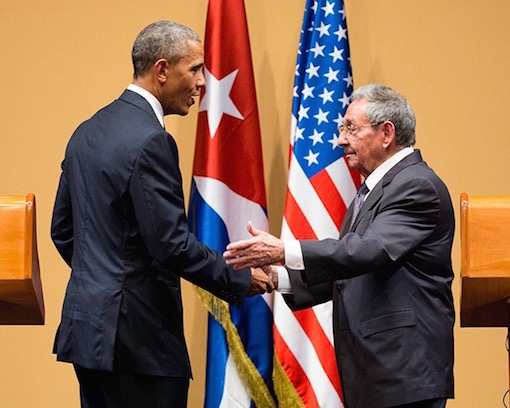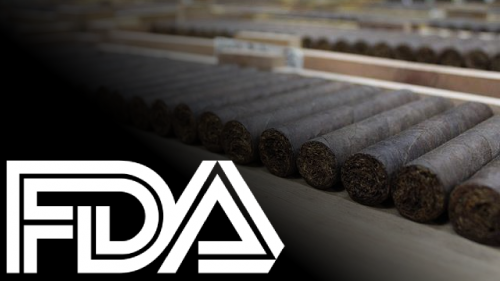News: FDA Misleading Public About Cigars and Youth
11 May 2016

There is no getting around the fact that the final FDA rule released last week is a nightmare for premium handmade cigars.
Although premium cigars represent just 2.1% percent of all cigars smoked in the United States (according to the FDA, 300 million of the 14 billion total cigars sold), the vibrant creativity that has come to represent this small handmade portion of the cigar market will be hit with the overwhelming burden of complying with rules that require FDA approval for every cigar not on the market before February 15, 2007.
Within each brand, every size of that blend that was introduced after that date will have to apply for FDA approval, or be off the market, by August 2018. So literally thousands of blends would have to apply, something no one (including the FDA) expects to happen.
In its public statements regarding the rule and within the 499-page rule itself, the FDA repeatedly alludes to the need to regulate cigars to protect children. But a closer look shows the facts don’t support the claim. In fact, at least one of the statements the FDA told the public about this is demonstrably false.
FDA Misstates Current Law
In its press announcement of the new rule, the FDA made the following statement: “Before today, there was no federal law prohibiting retailers from selling e-cigarettes, hookah tobacco, or cigars to people under age 18.”
This claim struck me as odd, at least in respect to cigars, so I asked an FDA spokesman for clarification. Despite multiple emails back and forth, I never got a substantive answer to my question: Does the FDA know of anywhere in the U.S. where the sale of cigars to minors (under 18) was not already illegal?
At one point in the exchange, I was referred to the “CDC [Center for Disease Control] or a group like the Campaign for Tobacco-Free Kids,” which seemed strange given that the FDA had just designated itself the chief regulator of cigars.
Despite that, I asked both groups that the FDA referred me to. The Campaign for Tobacco-Free Kids confirmed that every state prohibits sales to minors (and that Alabama currently also prohibits sales to those age 19). The CDC spokesman made it even more clear that the FDA was wrong in its announcement that prior to these rules federal law did not prohibit sales of cigars to minors.
The CDC spokesman wrote the following back to me: “In response to your question about selling tobacco products to persons under the age of 18. The federal minimum age of sale for tobacco products is 18. States are free to make it higher, but not lower.”
In other words, the federal agency that the FDA referred me to directly contradicted the statement put out by the FDA. Of course, by then the FDA’s misstatement had already been repeated in numerous news accounts of the new regulation.
FDA Cites 29-Year-Old Adults as Evidence of Youth Usage
But the FDA’s deception on this issue doesn’t end there. Within the rules, especially in the justification for not exempting premium cigars, the FDA repeatedly conflates underage use of cigars with choices made by adults.
The final FDA rule repeatedly uses the phrase “youth and young adult(s),” 56 times to be exact, within the rule. So I asked the FDA how they defined young adults and “what would be the oldest a person could be and still be considered a ‘young adult’ by the FDA?”
I was told “young adults” and other references to age groups depended on the specific studies being cited. A look at those studies show that some used 25 while others used 29 as the upper limit for “young adults.”
So while the FDA is using the age-old justification that their rules are necessary “for the children,” the fact is they are citing studies about the choices made by 29-year-old adults, men and women who could have legally served in the U.S. military for over a decade, to do it.
New Rule Really About Restricting the Choices of Adults
At other times, the FDA drops the pretense of the regulations being about youth access all together. At one point in the rule (page 178), the FDA states that it agrees with the proposition that if premium cigars are exempt from the rule, “the current population of premium cigar users would be left unprotected, potentially decreasing the likelihood that they would quit.”
Further, in the FDA’s announcement, a quote from Health and Human Services Secretary Sylvia Burwell specifically states that the aim of the rule goes far beyond children: “Today’s announcement is an important step in the fight for a tobacco-free generation.” So if anyone had any doubts that the FDA wants to totally eliminate tobacco, that statement by a cabinet-level appointee should erase them.
The irony is, even if the new rules were actually designed just to restrict use by minors, the grandfather date set by the legislation that empowered the FDA to regulate cigars means that, barring a sweeping act from Congress, there will always be pre-2007, non-FDA regulated tobacco products out there for lawbreaking minors to find ways to illegally acquire. Better enforcement of laws already on the books might fix that, but the regulations announced last week won’t.
Meanwhile, thousands of premium handmade cigars will be wiped off the market in just over two years, serving no purpose except to restrict the choices available to the adults who choose to enjoy them.
–Patrick S
photo credit: Stogie Guys




 Patrick Ashby
Co-Founder & Editor in Chief
Patrick Ashby
Co-Founder & Editor in Chief Patrick Semmens
Co-Founder & Publisher
Patrick Semmens
Co-Founder & Publisher George Edmonson
Tampa Bureau Chief
George Edmonson
Tampa Bureau Chief